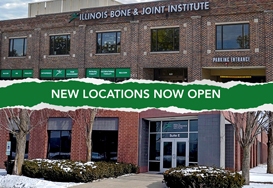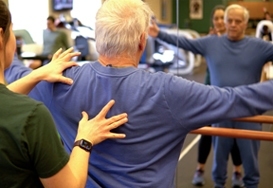The pelvic floor muscles, along with offering foundational support and stability during body movements, have many other important roles. These include providing pelvic organ support (bowel, bladder, intestines to name a few), maintaining continence (of urine, gas, feces), lymphatic pumping (contracting and relaxing helps push fluid in and out of pelvis), and sexual function (contracting and relaxing pelvic floor muscles allow for blood flow in and out of the pelvis which allows for erection and ejaculation for men and sexual sensation and arousal for women).
Dysfunction of the pelvic floor can be seen in various capacities. Pelvic floor dysfunction can arise from pregnancy, scar tissue restrictions (following surgeries of back, abdomen, hip, pelvis), poor bowel or bladder habits, chronic constipation, chronic lower back or hip pain, tailbone injury, pelvic organ prolapse, straining during high demand fitness pursuits or with heavy lifting, and cycling.
Pelvic floor muscles are much like other muscles in the body in their response to physical therapy. Physical therapy techniques can help to release muscles that are tight and painful and strengthen muscles that are weak. Pelvic floor physical therapy involves patient education to help empower the patient in their self care and during their rehabilitation process.
What Are Common Pelvic Floor Problems?
Common issues for men, women and children are:
- Urinary incontinence (losing control of urine with activity, coughing, laughing, sneezing, strong urgency)
- Urinary frequency (urinating more than 7-9 times per day)
- Gas incontinence (losing control of gas when not preferred/expected)
- Fecal incontinence (losing control of feces)
- Incomplete bladder or bowel emptying
- Muscle dysfunction causing voiding difficulties due to chronic constipation
- Pelvic pain - perineal pain, rectal pain, groin pain, pubic pain
- Abdominal pain, pressure or heaviness
- Coccyx or Tailbone pain
- Sacral pain and dysfunction
Common issues specific to men:
- Erectile Dysfunction
- Urinary incontinence post prostatectomy
- Penile or testicular pain
- Rectal prolapse
Common issues specific to women:
- Pelvic Organ Prolapse - uterus, bladder, intestines, rectum
- Vaginal pain
- Pain with intercourse
- Inability to orgasm
Services
IBJI’s Therapists work directly with patients and physicians to establish clear treatment goals and a customized plan of care. Therapy sessions may include the following techniques:
Manual Therapy
- Internal Vaginal or Internal Rectal Muscle Release
- Neural & Joint Mobilization
- Myofascial Release
- Trigger-Point Therapy
- Soft tissue mobilization
- Connective Tissue Mobilization
- Scar Tissue Massage
- Visceral Mobilization
Education
- Dietary/Fluid Modifications
- Relaxation & Breathing Techniques
- Urge Suppression Techniques
- Kegel Training / Pelvic floor muscle strengthening
- Prenatal and Postnatal Exercises
- Self treatment techniques to utilize at home
Therapeutic Exercises
- Improve strength, endurance, coordination, and flexibility of pelvic floor, other core muscles and hip muscles.
- Establish a home exercise program
- Postpartum rehab
What is a Pelvic Floor Therapist?
A Pelvic Floor therapist has received specialized training on pelvic anatomy and symptoms and treatment associated with the pelvis, abdomen, hip and lower back. Pelvic floor physical therapists are trained to perform external evaluations as an orthopedic physical therapist along with specialized training to perform internal vaginal and internal rectal assessment and treatment. Therapists provide one-on-one patient interactions, in a private treatment room, to provide confidential treatments based on the newest research and techniques. Each treatment is individually designed with a focus on improving quality of life.
Locations
Pelvic Floor Therapy (or Health) Services are offered at the IBJI Rehabilitation locations in Chicago-Avondale, Gurnee, Highland Park and Morton Grove.




